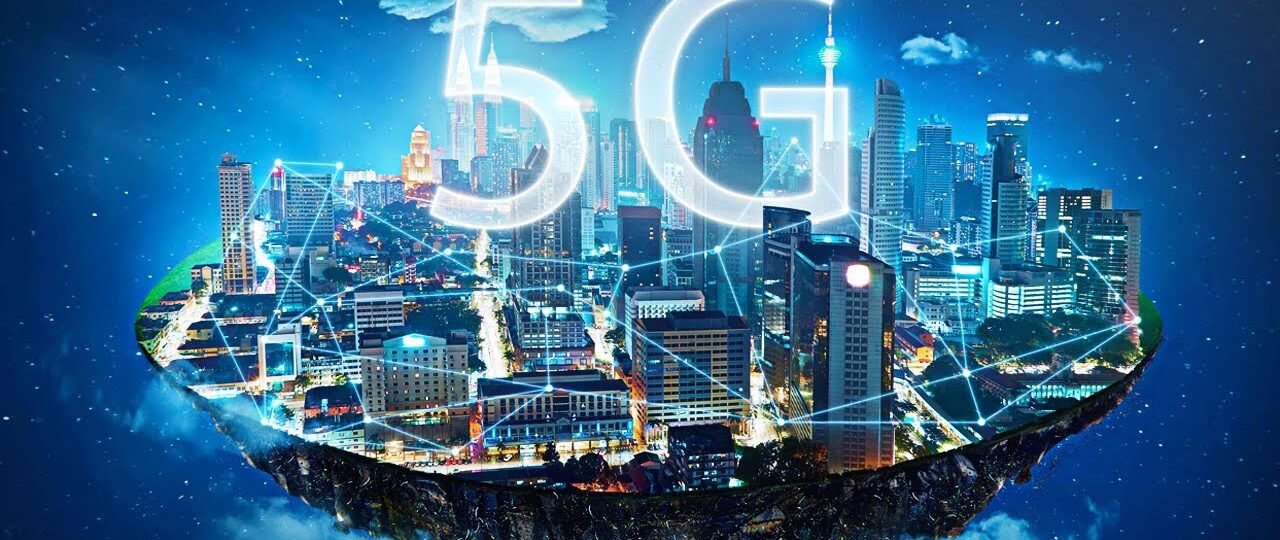The rollout of 5G networks is often touted as the next big leap in connectivity, and for good reason. With faster speeds, lower latency, and the ability to connect more devices simultaneously, 5G has the potential to change how we live, work, and interact with the world. While 5G might seem like just a slightly faster version of 4G, it is much more than that. Its capabilities will unlock innovations in various fields, from healthcare and transportation to entertainment and smart cities. So, how exactly will 5G change everything?
1. Lightning-Fast Speeds: Revolutionizing Communication and Streaming
One of the most significant benefits of 5G is its incredible speed. 5G can offer download speeds of up to 10 gigabits per second—up to 100 times faster than 4G networks. This will fundamentally alter how we consume media, communicate, and interact with content.
Faster Downloads and Streaming
With 5G, streaming ultra-high-definition content in 4K or even 8K on your phone, tablet, or laptop will become seamless. No more buffering, lagging, or waiting for your favorite movies and shows to load. Whether it’s watching a live sports event or playing online games, 5G will ensure a smoother, high-quality experience, especially in high-traffic areas.
Improved Video Calling
Video calls will see a major upgrade, with higher-quality video and virtually no latency. This is especially important in business settings where video conferencing has become a regular part of work culture, and it also benefits social interactions, making face-to-face virtual communication more like an in-person experience.
2. Low Latency: Enabling Real-Time Interactions
One of the standout features of 5G is its significantly reduced latency, which is the delay between sending and receiving data. In 5G networks, latency can drop to as low as 1 millisecond, compared to 30-50 milliseconds on 4G. This reduction in latency will enable a range of applications that require near-instant responses, including:
Autonomous Vehicles
Self-driving cars depend heavily on real-time data processing to navigate and make split-second decisions. 5G’s low latency will be crucial for enabling truly autonomous vehicles. These vehicles will need to communicate with each other, traffic lights, and road sensors to safely navigate complex environments. With 5G, the almost instant communication between vehicles and infrastructure will make autonomous driving safer and more reliable.
Remote Surgery
Telemedicine and remote surgery will be another area transformed by 5G. Surgeons will be able to perform high-precision procedures remotely, with no lag between their actions and the tools they control. This could open up healthcare access in remote or underserved areas, providing life-saving treatments to patients who otherwise wouldn’t have access to specialized care.
Augmented and Virtual Reality (AR/VR)
AR and VR experiences require near-zero latency to feel truly immersive. With 5G, the real-time processing of complex data will allow for more responsive and lifelike experiences. Whether for gaming, education, or workplace training, 5G will allow users to interact with virtual environments with minimal delay, enhancing the overall experience.
3. Connecting More Devices: The Rise of the Internet of Things (IoT)
The Internet of Things (IoT) refers to the growing network of devices that communicate and share data over the internet. From smart home devices to wearables, connected cars, and industrial sensors, the IoT ecosystem is rapidly expanding. 5G will vastly improve the capacity of networks to support more connected devices, allowing billions of devices to work together seamlessly.
Smart Homes and Cities
With 5G, smart homes will become more efficient, responsive, and interconnected. Devices like thermostats, lights, security cameras, and appliances will communicate with one another in real time, creating smarter, more energy-efficient living environments. Likewise, smart cities powered by 5G will optimize everything from traffic flow and waste management to public safety and energy usage, making urban living more efficient and sustainable.
Smart Manufacturing and Industry 4.0
5G will also play a pivotal role in the evolution of manufacturing. In industrial settings, IoT devices and sensors powered by 5G will provide real-time insights into equipment performance, inventory management, and production processes. This level of connectivity will improve operational efficiency, reduce downtime, and enable predictive maintenance, where equipment is repaired before it breaks down.
4. Empowering Industries: Transforming Healthcare, Retail, and More
5G will touch every industry, enabling innovations that would not have been possible with previous generations of mobile networks. Here’s a look at how 5G could reshape a few key sectors:
Healthcare
In addition to remote surgery, 5G will enable more efficient telemedicine consultations and remote patient monitoring. Medical professionals can instantly receive high-resolution images and videos, consult with colleagues in real-time, and use AI-powered diagnostics. Hospitals will be able to deploy connected medical devices and robots that can communicate instantly with staff and other devices, improving patient care and operational efficiency.
Retail and E-Commerce
The retail sector will be transformed as 5G enables more immersive and personalized shopping experiences. AR can be used to allow customers to try on clothes virtually or visualize how furniture will look in their homes. Real-time inventory tracking powered by IoT devices will improve stock management and reduce out-of-stock situations. Additionally, with faster internet speeds, customers will enjoy seamless mobile shopping experiences, reducing friction in the buying process.
Entertainment and Gaming
In entertainment, 5G will open up new possibilities for live-streaming events, gaming, and interactive media. Mobile gaming will become more sophisticated, with cloud gaming platforms allowing users to play console-quality games on their smartphones. For VR and AR content, 5G’s speed and latency will allow for more immersive experiences, making virtual concerts, sporting events, and gaming sessions far more realistic.
5. Enhancing Connectivity in Remote Areas
5G will not only improve connectivity in urban areas but also extend its reach to rural and underserved regions. Traditional broadband internet infrastructure can be costly and difficult to deploy in remote areas, but 5G offers a more cost-effective solution to provide high-speed internet access in these regions. This could have significant implications for education, healthcare, and business opportunities, bridging the digital divide and bringing services to places that were previously disconnected.
6. Transforming the Workforce: More Flexibility and Remote Work
The COVID-19 pandemic demonstrated the importance of remote work, and 5G will make this even easier by ensuring that people can work from anywhere without experiencing connectivity issues. High-speed mobile internet will allow for seamless video conferencing, file sharing, and access to cloud-based applications, making remote work more efficient and accessible.
In addition, industries like construction, logistics, and field service will benefit from 5G-powered mobile solutions that allow workers to access real-time data and communicate with teams in the field. The increased efficiency of mobile workers will boost productivity and make collaboration smoother, no matter where employees are located.
7. Data Security and Privacy Concerns
While 5G offers enormous potential, it also brings new challenges related to data security and privacy. As more devices and systems become interconnected, there will be greater risks of cyberattacks and data breaches. 5G networks will need to be fortified with advanced security measures to protect sensitive data.
Moreover, the large amount of data generated by IoT devices will raise privacy concerns. Regulations like GDPR will need to be adapted to ensure that users’ personal data is protected in a highly connected world.
Conclusion: The Transformative Power of 5G
5G is not just about faster internet speeds; it’s about unlocking new possibilities for innovation and transforming how we interact with technology. From autonomous vehicles and remote surgery to smart cities and enhanced entertainment experiences, 5G will touch every aspect of our lives. The technology will create more seamless and efficient systems, connecting billions of devices in ways that were previously unimaginable.
However, to fully realize the potential of 5G, we must address challenges related to cybersecurity, data privacy, and equitable access to this transformative technology. The future of 5G holds immense promise, and its ability to change everything will depend on how well we manage and harness its power for the benefit of all.




